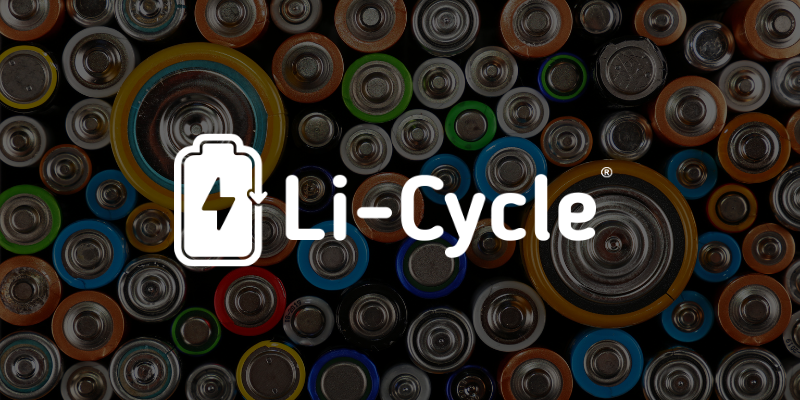



May 6, 2022



Canada-based Li-Cycle, which recycles lithium-ion batteries, has received an investment of $200 million from Glencore, which supplies battery metals for the electric vehicle industry.
May 6, 2022
Original article published in Webrazzi
We shared with you the news that an initiative that reduces carbon emissions received investment during the day . We can say that initiatives aiming to increase positive environmental impacts, with missions such as stopping climate change and increasing recycling have been in demand recently, the most important reason for this is global warming, the effects of which we are feeling more and more, and the gradual disappearance of natural resources for this reason. Another initiative operating in this context is Li-Cycle . Because Li-Cycle ensures the recycling of lithium-ion batteries, which have a very negative effect when thrown into the nature randomly.
Governments and companies around the world are refining their efforts to recycle old batteries. For example; US President Joe Biden’s administration said this week it will set aside $3 billion to fund electric vehicle battery recycling. So the work of Li-Cycle is very important at this point.
Li-Cycle leverages innovative Spoke & Hub Technology to provide a customer-centric, end-of-life solution for lithium-ion batteries while creating a secondary supply for critical battery materials. Lithium-ion rechargeable batteries are increasingly powering our world in automotive, energy storage, consumer electronics, and other industrial and home applications. The world needs advanced technology and supply chain innovations to better manage battery manufacturing waste and end-of-life batteries, and to meet the rapidly growing demand for critical and scarce battery-grade raw materials through a closed-loop solution. This is where Li-Cycle comes into play.
Launched in 2016 in Canada by Ajay Kochhar and Tim Johnston , Li-Cycle shreds used batteries and uses a water-based system to start breaking down the batteries. The technique, known as hydrometallurgical machining, uses less energy than other techniques. Li-Cycle sends a substance known as black mass from the spoke facilities to the central facilities for further processing. At the facilities it breaks down the black mass into a variety of materials, including those that can be used to make new lithium-ion batteries.
Li-Cycle has now received a $200 million investment from Glencore , which supplies battery metals for the electric vehicle industry . The deal between Switzerland-based Glencore and Li-Cycle is scheduled to be completed by July. Li-Cycle is building several recycling plants around North America. The company will also use the investment from Glencore for these projects and other corporate purposes. Glencore has also agreed to supply sulfuric acid to Li-Cycle, and the company will also purchase certain metals produced during Li-Cycle’s recycling process.
